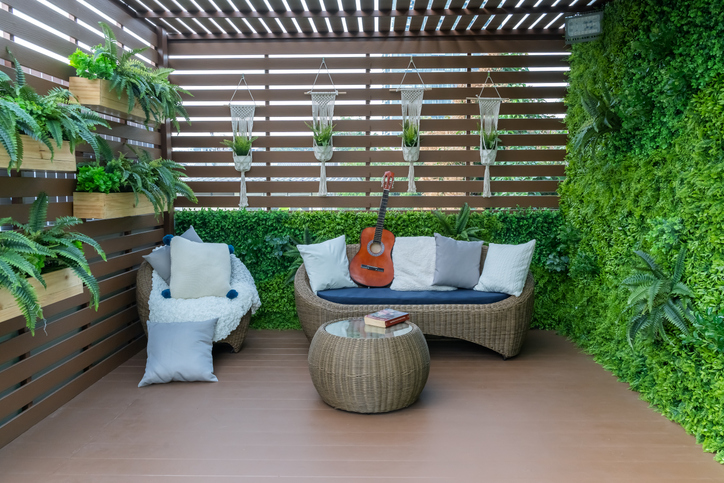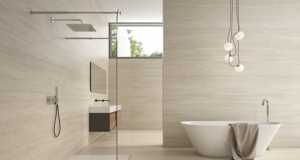

In these COVID-19 times, those of us who are lucky enough to have an outdoor space should feel truly lucky.
For those who don’t, or perhaps do but have done little with what space they have, there has never been a better time to start one, take some time to plan and set it up.
Even apartment dwellers who may only have a small balcony can get in on the act according to UNSW Build Environment Associate Professor Paul Osmond, who is also the head of the sustainable built environment program.
“Part of the joy of interacting with a garden is maintaining it – watering it, composting it, harvesting it – through the entire cycle. But a mass of work has been done relating to the importance of nature, or biophilia, to health.”
Balcony gardens, he says, can be a great place to de-stress and relax, exposing the person to a truncated version of nature.
“There are the basic health benefits of getting fresh air, getting your hands dirty, interacting with plants and nature, which is a known way of relieving stress. It also improves physical health if you’re outside and you’re able to be active.”

Working with your available space
While not everyone can have a house with a backyard, it is still possible to get in on the vegetable growing trend with a balcony. Herbs, vegetables, even small fruit trees can be grown on a balcony, Paul says.
He recommends low maintenance plants as they will save water and you can avoid using chemical fertilisers. Another emerging trend, he says, is design integration such as green walls.
“If you’re living in a city where you’ve got a lot of apartment buildings and you’ve got the option of grey walls or vertical greening, then there’s a great social benefit because those views of nature, being immersed in nature is better than just looking at concrete.”
A lot of local Australian plants are tough enough to plant and forget.
Avoiding the nature deficit
Paul stresses that nature deficit can be detrimental to health and immune systems, adding that social distancing measures should not be misconstrued with nature isolation.
“The ability to have that interaction with nature, in whatever way we can, is vital. It [social distancing] has been misinterpreted to suggest we should be completely indoors. It’s about physically distancing oneself from other people, but even if you’re completely isolated, you can go outdoors; you can go into your garden, you can go onto your balcony.”
He adds that having a garden can contribute to food production as an additional supplementary source of fresh produce and some people have successfully grown balcony farms.

Gardening promotes social cohesion
While it is hard to measure the impact of DIY balcony gardening, similar community movements have had a groundswell of support in recent times. Paul says there is no reason why apartment dwellers too couldn’t easily take on a balcony garden as a form of collective social responsibility.
“If you get enough people doing it, we’re talking about at least some capture of carbon dioxide, so again there’s a benefit, if a minor one, but a benefit nonetheless, with respect to climate change.
“There’s also a potential for biodiversity if you’ve got these diverse gardens with different species, bees for example and pollination, even on a balcony scale, that is helping biodiversity and wildlife.”


